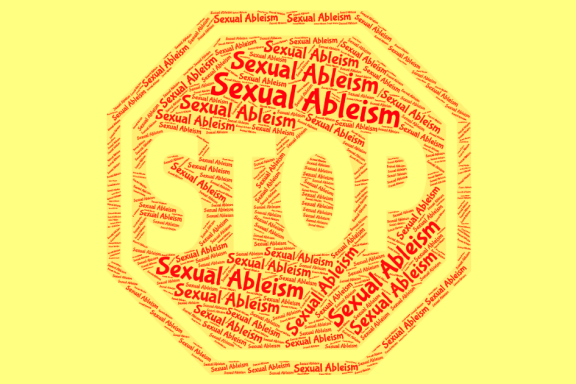Devoteeism is a term used to describe individuals who are attracted to people with physical disabilities. This attraction may be sexual or non-sexual in nature. nature, and may include an interest in the physical characteristics or experiences of disability
Devotees often seek out relationships, friendships, or online communities with people who have disabilities. Some people with disabilities may also identify as devotees themselves.
If you want to learn more about what do disabled people think of devotees, see this article by Kirsty Liddiard of the University of Sheffield that covers a BBC documentary on devoteeism and a disabled woman’s experience with people who identify as “devotees.”
The term “devotee” is controversial, as it has been criticized for being exploitative and objectifying people with disabilities. Some people view devoteeism in disability as an extension of sexual ableism, a belief that people with disabilities are incapable of having fulfilling sexual lives.
What is a disability kink?
The term “disability kink” can refer to a range of kinks or BDSM activities that involve disability-related themes or elements. These can include, for example, power dynamics related to disability, fetishization of particular disabilities or assistive devices, or incorporating disability-related language or imagery into scenes or fantasies.
It’s important to note that disability kink is a complex and sensitive topic that can involve ethical and consent-related considerations. Some disabled individuals may feel empowered or validated by engaging in disability kink, while others may find it objectifying or offensive. As with all BDSM activities, it’s crucial to ensure that all parties involved have given informed and enthusiastic consent, and that any disability-related elements are approached with sensitivity and respect.
It’s also worth noting that not all disabled individuals are interested in or comfortable with disability kink, and that disabled people are not inherently more or less likely to engage in kink or BDSM than non-disabled individuals. Kink and BDSM are diverse and individual experiences that are shaped by a wide range of factors, including personal preferences, identities, and histories.




